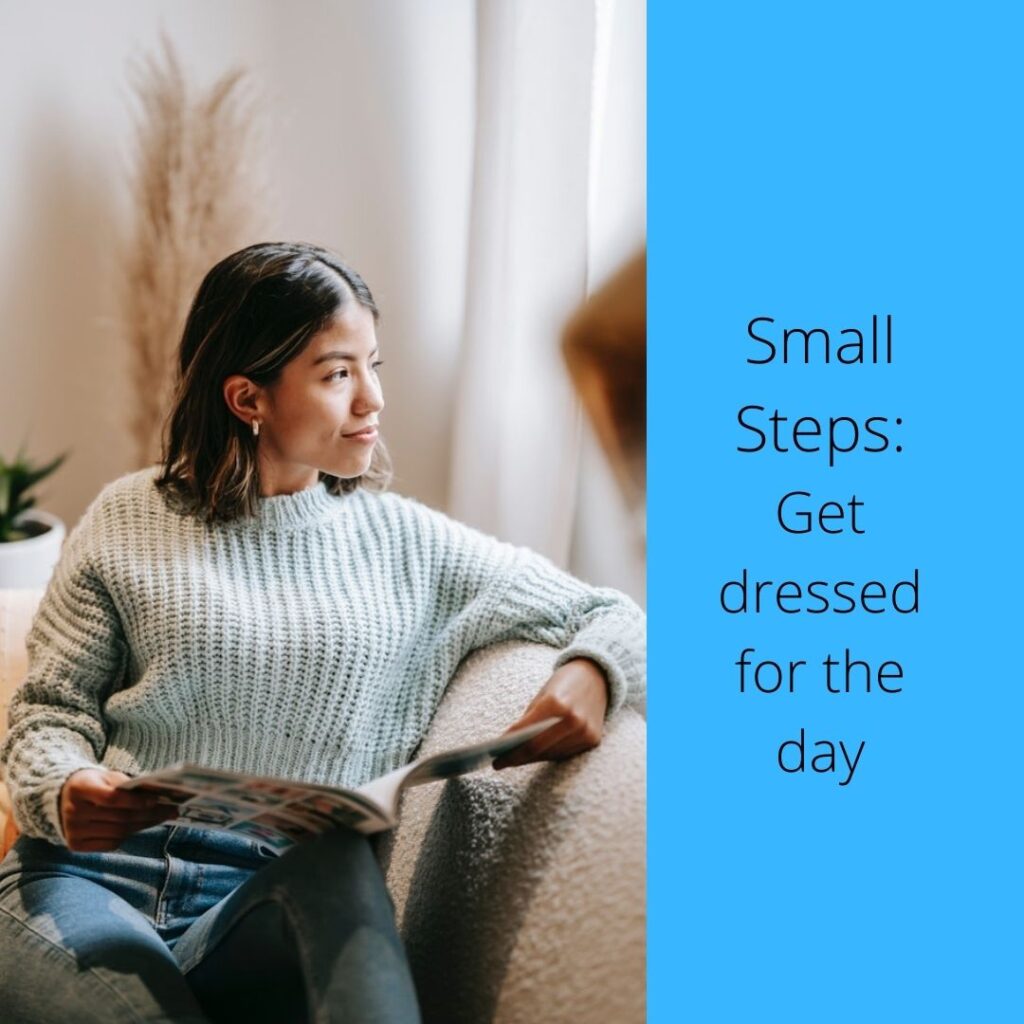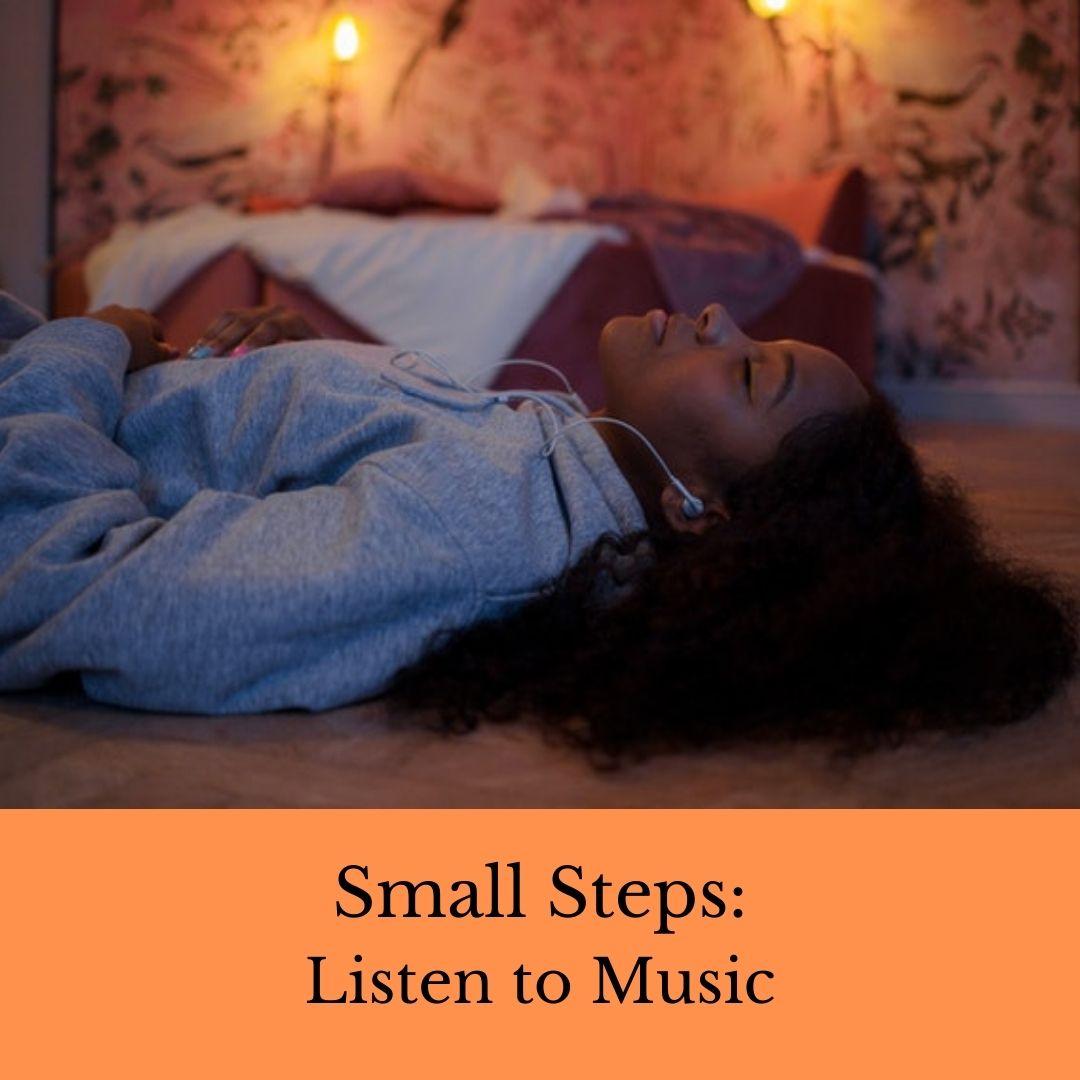Get fully dressed. Give yourself extra credit if you get cute.
One of the things I’ve noticed is that when people feel beaten down and/or have depressing thoughts, they want to stay in sleep gear or wear whatever they can throw on. You may be doing this because your narcissist insulted you or said something about your appearance, and you took it to heart. Remaining in sleepwear won’t undo what was said, heal your heart, or help you do what is necessary to keep moving forward.
We’ve seen shows where a housewife is in a robe and hair curlers all day long or where a guy is still in his sleeping gear. Mentally, we look at them as lazy, unproductive, neighborhood snoops, and see them watching TV nonstop. Of course, there may be reasons for doing this occasionally, such as wanting to lounge around on a day off. However, it’s not positive if done long term.
It’s easy to fall into this habit when you’ve been hurt. If you aren’t dressed for the day, you may feel that you don’t have to face anything and can go back to bed to sleep your pain away at a moment’s notice. Unfortunately, you’re also less likely to want to do what is needed, such as pay bills.
Small Steps #3 – Get fully dressed for the day.
We’ve known that clothes affect how we speak, work, and feel. Now, we have a term for it: “enclothed cognition.” Basically, what we choose to wear affects how we feel.
I have listened to people talk about how they’re treated when they’re in uniform, in business suits, dressed well, made up, etc. Sleepwear just looks like someone is getting comfortable and going to bed. It doesn’t really have a “typical” person as a look. Anyone can wear it. I wonder if we subconsciously feel as if we lose a piece of our identity by keeping it on because there’s no standard. I think there’s a bigger danger if we were already home for long periods (ex. stay-at-home mom) before falling into the habit of not dressing for the day.
Getting dressed sends a message to our brains that it’s time to prepare for the day. If we don’t change clothes, we may send ourselves a message that we don’t need to do a task, can delay the task, or believe that work or sleep don’t have a shutdown function. They just go on and on and on…blending one heartbroken day into the next.
Even though I’ve worked at home for years as a caregiver, I can feel the difference between being “work ready” and just being “clothed.” I had to fight to stay awake when I wore sleep gear, which meant that it would take much longer to get things done. I lacked the desire to be active, go anywhere, play games, or even cook. I was never up for company or visiting anyone because I wasn’t dressed to leave the house. Mentally, I was ready to order out because I didn’t have the energy to cook. Postponing tasks “until tomorrow” was a temptation I faced every time I didn’t wear my “day clothes.” Why? Because I associate loungewear and bed clothes with “no work” and “sleep.”
If you are just beginning your healing, take it slow. Put on something that is presentable to company and fits properly. Make up your bed so that you aren’t tempted to climb back in. You are more than your situation. Don’t fall into the trap of wallowing in self-pity. You can start rebuilding your confidence with one wardrobe change.
How Fashion Affects Your Brain | ELLE
Additional resources:
VanSonnenberg, Emily. “Enclothed Cognition: Put on Your Power!” Positive Psychology News. May 12, 2012. https://positivepsychologynews.com/news/emily-vansonnenberg/2012052122126.
Teller Report. “According to Psychology…What Happens When You Wear Sleepwear All Day?” June 6, 2020. https://www.tellerreport.com/news/2020-06-06-according-to-psychology—–what-happens-when-you-wear-sleepwear-all-day-.H1N5Qyt3I.html.
Bisel, Barbara. “The Psychology of Getting Dressed – Even If You’re Staying Home.” November 19, 2020. https://www.linkedin.com/pulse/psychology-getting-dressed-even-youre-staying-home-barbara-bisel.
June 1, 2021




